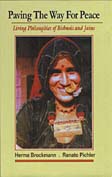
European Vegetarian and Animal News Alliance (EVANA)
en de fr pt es
it nl ro sl sq sv
 |
European Vegetarian and Animal News Alliance (EVANA) |
Select language: en de fr pt es it nl ro sl sq sv |
|---|
|
Book recommendation: 
Join us on  Facebook! RSS engl. RSS all lang. Donation to EVANA. |
EU: When the vegan had coffee with the pig breederDuring the 'International Conference on Animal Welfare' on 30 March 2006 in Brussels, the Austrian EU Presidency squared a remarkable circle by bringing together people for whom animals play a pivotal role. Of course, their motivations varied wildly and covered many aspects, including the extreme ends of the spectrum.Participants had come from the EU and many other countries. There were members of the European Commission and Parliament, journalists, scientists, theologians, politicians, representatives of a wide range of national and international companies (from McDonald's to Ikea and Pfizer) and the zoo industry. Consumer groups, cattle-, pig- and chicken-breeders, fur producers, the farm-, meat-, egg-, fish-, hunting- and leather-lobby had all sent many eloquent delegates. This very mixed crowd politely listened to Markos Kyprianou, European Commissioner for Health and Consumer Protection, who told them that it was 'a great pleasure to open this landmark event - the very first conference at European level on animal welfare'. The Commissioner pointed out the importance of 'the inclusiveness of animal welfare within an EU food chain policy'. There you are, dear fellow vegetarians - it's all about the 'food chain' which, after all, is based on the deaths of billions and billions of animals. Therefore it comes as no surprise that the assembly was not, contrary to what Mr. Kyprianou stated, a 'balanced forum reflecting the complex historical, social and scientific roots of animal welfare'! The priorities were more than clear: about 320 attendees interested in the exploitation of animals stood against about 45 wanting to look after their welfare including the lone representative of a vegetarian organisation. The assembly heard a lot of elegant words describing scientific, political, medical and commercial contexts regarding animals as food chain components. There was a palpable general fear of losing consumer confidence in meat, leading to falling sales. All other aspects like vivisection, the plight of wild animals and animals in captivity etc. were not addressed. Speakers concentrated on the role of animals in animal husbandry and its animal welfare aspects and guidelines, certification of systems, action plans, consumers' needs, motivations of producers and retailers interests. Nobody spoke about the feelings and needs of animals. Just one person defended them in the 'food chain'-context, namely Sonja Van Tichelen, Director of the Eurogroup for Animal Welfare. The majority of the participants were not amused about critical words but the friends of animals were able to enjoy a rare moment of relaxation. It's easy for the industry to promote better treatment of animals. Lip service reassures consumers and does not cost anything. However, as soon as any question of funding raises its ugly head, resistance becomes visible: Who is going to pay? To the representatives of the meat industry, the answer was quite obvious. Had they not just heard Commissioner Kyprianou's statement that 'surveys carried out by the Commission have highlighted that European citizens show a strong commitment to animal welfare and that they attach an economic value to that commitment. In fact, consumers declared at the last Eurobarometer that they want to see welfare friendly products on the shelves, and they are ready and willing to pay for them'? This conference had a message and it's this one: Let consumers foot the bill! So does everyone wanting to improve the living conditions for animals really need to dip deeper into his own pocket? Will compassionate Europeans really be forced to not only indirectly finance subsidies granted to the meat-industry via taxes (40 percent of the EU budget is earmarked for agriculture) but to pay extra if the meat-'production' is to be decent and humane? Again at this conference, Gandhi was quoted saying that the "greatness of a nation and its moral progress can be judged by the way its animals are treated." Referring to a community of 450 Million Europeans, there seems indeed to be a lot of goodwill which, unfortunately, has so far only resulted in very timid improvements. At this first Animal Welfare Conference, organized by the Austrian Federal Ministry of Health and Women, an individual believing in the rights of all sentient beings may not have been impressed with the declaration of a pig breeder who shouted into his microphone how much he loves his animals. Neither may a vegetarian have continued quietly sipping his coffee next to someone touting the conservation-value of seven million European hunters' activities. The regrettable fact that the meat-industry by far outnumbered the friends of animals was not the responsibility of the organizers. It can only be hoped that, in future, those protecting animals are going to take part in the debate in far greater numbers. Our voices must get louder. Austria has made a courageous first attempt to defuse a major bloody conflict which is costing an astronomical number of innocent victims each year. Negotiations are feeble means of bringing any war to an end. But what other possibilities are there?
Date: 2006-04-04
|